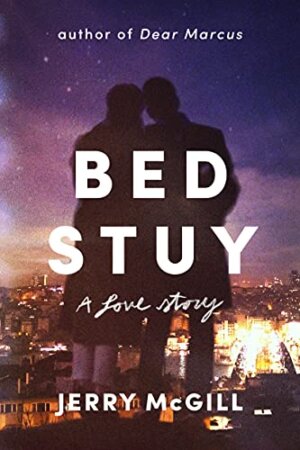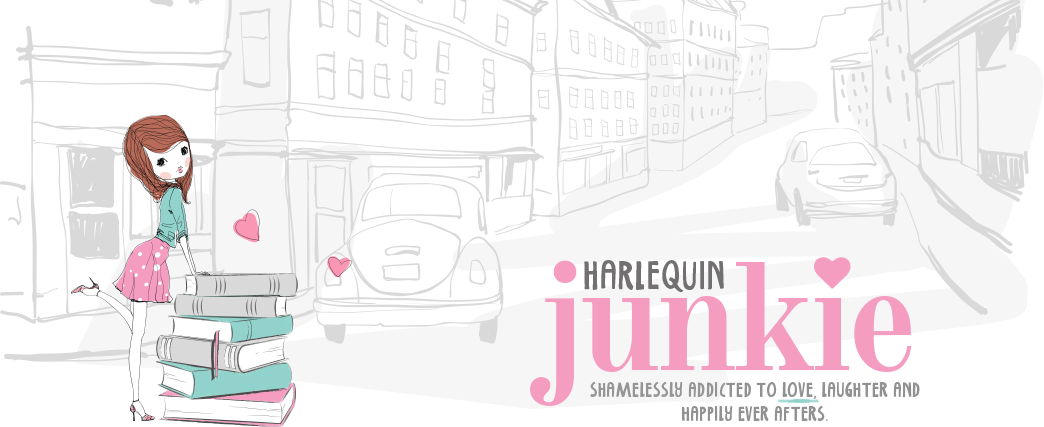Today it is my pleasure to Welcome author Jerry McGill to HJ!

Hi Jerry and welcome to HJ! We’re so excited to chat with you about your new release, BED STUY: A Love Story!
Please summarize the book for the readers here:

Please share the opening lines of this book:
Of course, flame played a role. Flame had so much to do with his life. He remembered vividly how his mother would leave him and his brother alone at night, just children, while she hit the clubs with her girlfriends.
Please share a few Fun facts about this book…
Fun fact – the original title was “The Flutist Of Bed Stuy”. The first draft had about five different characters in it and was about 450 pages long. There was a theme involving a classic Gershwin song but I could not get the rights to use the song and had to cut that narrative, which broke my heart a little.
Please tell us a little about the characters in your book. As you wrote your protagonist was there anything about them that surprised you?
When I first started writing Rashid I had pictured him as a little more hard edged, more like some of my homies that I grew up with. But I realized early on it made the story more powerful and made him more relatable if he was a lot more vulnerable, less cocksure. I wanted him to lack the toxic masculinity that hurts so many of us. The character that I felt I knew best was Muriel, mainly because she was based on someone I once knew very well and both admired and was intimidated by. Rachel was a composite of many women friends I’ve known in my life who found themselves in deeply unsatisfying marriages in which they never felt appreciated.
If your book was optioned for a movie, what scene would you use for the audition of the main characters and why?
Oh boy. This is such an interesting question. I think I would go with a scene I agonized over for some time – they are at the Port Authority and Rachel is about to board the train back to Boston. She has told him she won’t be able to see him for about a month and it fills the moment with tension. In this scene she tells him that she hopes he never grows to hate her and he can’t understand why she would be concerned with that. There is a subtext in the scene that whispers: Run while you can, love never lasts.
What do you want people to take away from reading this book?
I want readers to be moved by two people who truly gave it their all, put so much out there in an effort to fulfill each other but found themselves falling short when the reality of their differences proved too great. I want readers to be moved by the connections that we make in life and to remember how important relationships are both romantic and platonic. That family can be absolutely anyone.
What are you currently working on? What other releases do you have planned?
So before I even started “Bed Stuy” I had spent a little over two years working on a series of short stories about an upper-class African-American family on the East Coast and the traumatic incident that shapes many of their lives. I am coming moving that from short stories to novel and am hopeful that will be my follow up to “Bed Stuy”. I am also working on a musical, a play, and a screenplay. I feel very fortunate in that I’m always working on something. I’ve never experienced writer’s block.
Thanks for blogging at HJ!
Giveaway: Three copies of BED STUY by Jerry McGill (U.S.)
To enter Giveaway: Please complete the Rafflecopter form and Post a comment to this Q: Have you ever had a profound relationship with someone outside of your ethnicity or social class? What was that like for you?
Excerpt from BED STUY: A Love Story:
Chapter One
Of course, flame played a role. Flame had so much to do with his life. He remembered vividly how his mother would leave him and his brother alone all night, just children, while she hit the clubs with her girlfriends. He and Darnell had grown up fiercely independent. But on one particular February night, he fucked up bad. As had often happened in their Bedford Stuyvesant apartment complex, the lights went out. They called it a “power failure.” It seemed like power had been failing him all his life. In this case, it meant no more television for him and his brother. But they needed to see. So he lit candles, six, maybe eight of them. Placed them in the kitchen and in their bedroom. Eventually they both fell asleep.
The smoke was the most devastating aspect. But he witnessed the violence of the heat: bright and infuriating. It was like a lizard’s tongue lashing everything around it with a searing intensity that reminded him just how small and weak he was. Humans didn’t stand a chance against nature. Never did.
The flame never reached his skin. But it touched Darnell. It touched Darnell the way acid rain touched a paper plate. The left side of Darnell’s skinny body would never be the same again.
When the threat was over, the fireman asked the boys, “Why were you alone tonight?” Darnell, in fresh bandages, knew to clam up in the presence of white authority. Darnell didn’t make the smart choices in life, but, unlike Rashid, he shared his mother’s street smarts. It was Rashid who foolishly uttered, “She leaves us alone a lot.” When his mother finally got home, euphoric off a night of dance and weed, the authorities confronted her with allegations of abandonment. The claim never went anywhere, but a certain damage had been done. A trust between the youngest son and his formidable mother had been eroded. Darnell became the one she expected to do the right thing. Flame taught Rashid a lot about the way things can collapse in the world, and that smoke, like disappointment, can spread rapidly, sticking to the walls forever.
But now, so many years later, flame was revealing something beautiful to him. For as he lit his cigarette in the cold windy alley behind Comforti’s, she came out to join him. She had even brought her own cigarette; it looked a lot fancier than his—slim and pristine. Two years later, he would shake his head on the subway platform when he heard that song of theirs, and he would feel one small regret. I should have just walked away. But in that first shared moment, as he lit her cigarette, hand steady like a deer in headlights, he watched Rachel Pollack, took in her features, noticed there was a confidence about the way she stood in her flesh. Her skin was illuminated like the blood of peaches, and he thought that this must be a rare instance where flame could bring two people together. She had to cup her hands around his to keep the lighter from going out. The flame dabbed at her fingertips, playfully. Her hands were softer than the other white women he knew. “Sorry about my mother,” she said.
“It’s cool. I’m used to it.”
“That doesn’t make it okay. She is getting worse with age. I’m sorry.”
“Really. It’s fine.”
“No, it’s not fine. Your job is hard enough. Dealing with rudeness from the people you serve shouldn’t be a part of it.”
“It’s okay, ma’am. Your mom is a regular. She’s good people. She always tips well.”
“You’re a good guy. I bet your girlfriend appreciates you.”
Words have power. Rachel Pollack didn’t teach him that, but she reminded him of it more often than anyone. The first time they made love was two weeks after he first sat for her mother. Rachel took him to a Bronx hotel room after an afternoon spent at Coney Island. Their bed was right near a window, and moonlight mixed with streetlight caused the sweat on both their bodies to flicker like fireflies in a tunnel. She had said to him in no uncertain terms while digging her nails deeper into his shoulder blades: “Harder! Harder! I’m not a flower!” When he obeyed, he was rewarded. Later that night, over a lukewarm pinot noir, she would tell him his eyes reminded her of a sunset she had once seen in Salzburg. He couldn’t picture what she was referring to. He had never left New York.He had no idea that sculpting was a job someone could make a living at, that a person could actually be paid hundreds of thousands of dollars for doing this thing that to a child in the classroom seemed like a messy bit of fun. In fourth grade he had shoved a wet mound of clay down the back of Tara Madison’s blouse and been sent to the principal’s office for it. His mother would later give him a beating for it (not the full belt; for that type of transgression, he got an open palm), but at least he had let Tara know he liked her. It established a pattern he’d revisit many times with many different Taras—attraction usually led to pain. But his personal impression of clay was simplistic: it was dirty and could lead to trouble. Gazing upon the professional pieces in Muriel Auslander’s studio—he would later learn from Rachel that one had sold for six figures—he was mesmerized.
This woman is for real, he thought.
Rachel walked him to the far end of the studio where he stared in awe at the sculpture of a large and powerful Black man, a boxer, full figured, staring straight at him, a gray warrior frozen in clay.
“She met him at a gym in Detroit. He was training for the Olympic trials. He had a horrible problem with heroin, though. Died of an overdose in ’96. His youngest son found his body in the bathtub, curled up in a fetal position. You ever try heroin?”
The question took Rashid by surprise. Heroin, like any drug stronger than weed, wasn’t something he messed with. The question seemed inappropriate, out of place.
“I’ve never done anything heavier than weed. And I hate needles. You?”
He watched her face grow soft and then tighten, and it took her several breaths to respond. In that brief window of space, he remembered something his aunt Felicia, the wisest of his five aunts, had told him once—“When someone takes their time responding to your question, they are usually coming up with a lie.”
“At my age, I’ve tried just about everything once.”
They walked up to another piece—another Black man, thin, lithe body. His toned arms were extended like a ballerina and he wore a tutu.
“I find myself wondering—what does she want with me?”
“My mother has a thing for the Black male form. Call it curiosity, attraction, call it lust. She finds it fascinating. You should sit for her as long as she’ll have you. As you know, she pays well. As you might not know, she can be a genuine bitch to sit for. But hey, at the end of the day, you’ll have some extra money and you’ll be immortalized like old Felix here. Maybe you’ll be in a gallery one day.”
Muriel worked in clay that would be fired in a gas kiln up to about 2,150 degrees Fahrenheit. To achieve immortality, he would have to be baked in an oven—not an image he enjoyed. The idea of sitting for her intimidated him, but he could absolutely use the money. That was how it all really started.
Excerpt. © Reprinted by permission. All rights reserved.
Book Info:
“McGill’s prose can acquire a quick, musical rhythm before settling into more expansive sections that deftly take on questions of race and class. In many ways, the novel is a wonder to behold.”
―Kirkus Reviews
“Smart and touching…McGill succeeds in depicting love as a universal force,
for better or for worse.”
―Publishers Weekly
“In Bed Stuy, Jerry McGill crafts a love story that is as gritty as a New York sidewalk and as tender as a first embrace. Two people from different worlds grapple with the challenge of how to bridge their divides―made chasms by race, age, and privilege―to connect, to understand, and to forgive. McGill’s knowing gaze is unflinching but compassionate, conveying in all its complexity the terror of love, the fear and doubt that plague it, and the bone-deep need for more.”
―W. S. Winslow, author of The Northern Reach
Praise for Dear Marcus: A Letter to the Man Who Shot Me
“An unforgettable and intriguing journey…Violence, hope, despair, forgiveness, anger, and living with a disability are explored both lightly and deeply, humorously and profoundly,
and always honestly.”
―Library Journal (starred review)
“An inspirational memoir by a writer who refuses to be defined by his paralysis as he comes to terms with the unknown man who shot him.”
―Kirkus Reviews
“I couldn’t put it down. This is a compelling marriage of remembrance and forgiveness, absolution and compassion, cynicism and understanding.”
―Wes Moore, author of The Other Wes Moore
“Written with passion, honesty, humor, and a stubborn, rebellious optimism, Dear Marcus is like nothing I’ve ever read. When a bullet in the back told Jerry McGill not to go on,
Jerry went on―smiling.” ―Shalom Auslander, author of Hope: A Tragedy
Book Links: Amazon | B&N | iTunes | Kobo | Google |
Meet the Author:
Jerry McGill is a writer and artist. He is the author of a memoir, Dear Marcus: A Letter to the Man Who Shot Me. After receiving a BA in English literature from Fordham University in the Bronx and a master’s degree in education from Pacific University in Oregon, Jerry went on to teach high school and travel the world mentoring disabled children. He lives in Portland, Oregon.


EC
Not yet but it would be nice to experienced one in life.
Debra Guyette
I have had friendships and experienced no issues.
janinecatmom
Only friendships, nothing romantic.
Lori Byrd
Yes, I have and it was great!
Lori R
No, I haven’t.
bn100
not sure
Mary C.
I had a relationship with someone outside of my ethnicity and the differences ended the relationship.
Teresa Williams
No but friendships I have .
Bonnie
No, I haven’t
Daniel M
no
Teresa Warner
I haven’t
Terrill R.
Yes. My first was hard for my family to accept and there was a lot of drama involved. I married my husband who is a different ethnicity. My family fully supported me and we’ve been married 26 years.